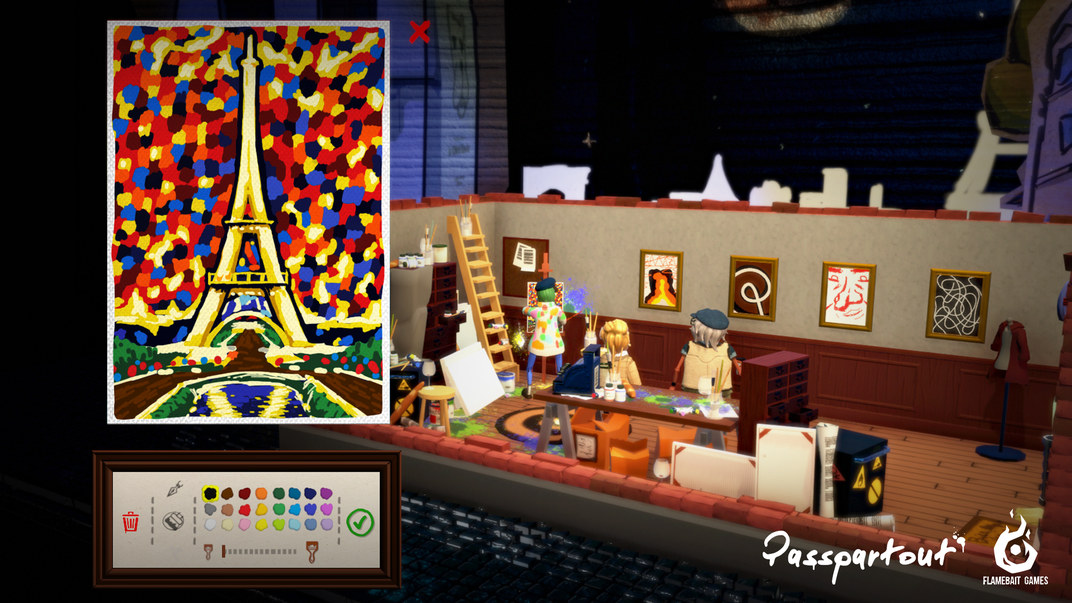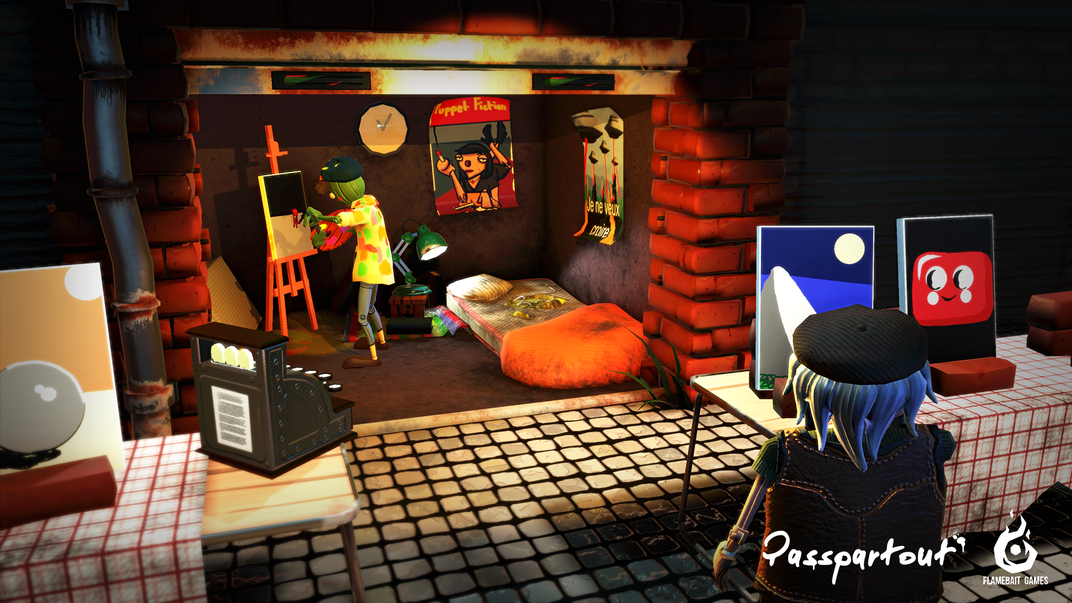New Video Game Parodies What it Means to Be an Art World Star
On Passpartout: The Starving Artist, you do everything from virtually impress collectors to dine on wine and baguettes
The art world can be unforgiving. Just ask Vincent van Gogh: His masterful self-portraits and landscapes adorn the walls of world-class galleries but received little acclaim during his lifetime. On the other hand, there's Damien Hirst, a contemporary art giant whose success derives from bedazzled skulls and animal carcasses. One thing is for sure—the formula for art world success is unpredictable, but thanks to the new video game Passpartout: The Starving Artist, users can envision their artistic careers without taking real-world risks.
Passpartout, released by Flamebait Games last month, features a Microsoft Paint-esque toolbox, an aspiring artist and a persnickety group of collectors. You play the game’s titular character, a painter who dreams of conquering the art world. Armed with a basic round brush and palette (you’ll need to make some sales before unlocking advanced tools, including a spray paint brush), you are free to fill canvases with as many subjects and artistic styles as you please. Potential collectors stop by to offer critique and, if all goes well, pay you enough to cover your monthly expenses—in true starving artist fashion, the funds go toward wine and baguettes.
Passpartout was developed by five Swedish developers who were interested in producing experimental games. Mattias Lindblad, CEO of Flamebait, tells GameSauce's David Radd, “We’re trying to convey a message about the art scene and the struggle of creative work in general, and we believe this is best done through satire.” That's clear enough when you read the team's tongue-and-cheek press release, which asks: "What is art? Are games art? Tackle the big questions in Passpartout! You might think you can’t draw, which is probably true. However, that hasn’t stopped people from becoming renowned artists before!"
Since its release on Steam and Gamejolt, the game has been downloaded more than 70,000 times.
Passpartout gleefully revels in and parodies art's seemingly arbitrary, volatile nature. As critics of modern and contemporary art like to argue, anyone can divide a canvas into color blocks à la Mark Rothko or draw a solitary shape equivalent to Kazimir Malevich's "Black Square." So, what makes one set of abstract brushstrokes better than another for the virtual critics deciding your fate in the game?
Gustav Rosberg, a graphic artist at Flamebait, declined to tell Artsy the game’s exact formula for evaluating art. He explained that factors such as number of brushstrokes, range of colors and time spent on a work all go into Passpartout's algorithm, but denies the game employs sophisticated A.I., adding, “You don’t need something incredibly complicated to give the feeling that people in the game have different preferences.”
Rather the game makes it so there's no satisfying answer as to why virtual collectors responded well to Isaac Kaplan of Artsy’s version of a Hirst spot painting but were less entranced by his urban nightscape. Or how come one buyer loved Christopher Livingston of PC Gamer's paintings of trees, despite their resemblance to amorphous blobs of green and brown. (Conversly, Livingston reports his more avant-garde works, including a blank canvas and series of multi-colored circles, were met with widespread jeers.)
But that's likely the point. Agree or disagree with the algorithm's judgements, the game's patrons are the individuals who fund your career and determine your commercial fate at the end of the three-act game. Some users find themselves catapulted to stardom (Kaplan notes that hipsters stopped buying his work after he became too successful for their tastes), while others fade into obscurity. In a game where subjectivity determines success, players must choose between following their creative instincts and ceding to buyers' demands. Sure, victory in the game might taste like baguettes, but it also likely comes with the aftertaste of artistic compromise.
/https://tf-cmsv2-smithsonianmag-media.s3.amazonaws.com/accounts/headshot/mellon.png)



/https://tf-cmsv2-smithsonianmag-media.s3.amazonaws.com/accounts/headshot/mellon.png)